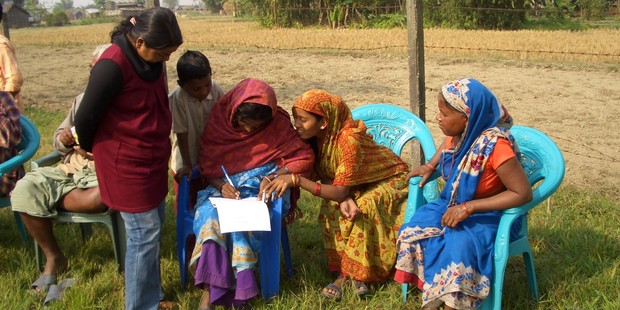Today, Amnesty International released its annual report on the use of the death penalty worldwide. Although 2013 saw more executions than in previous years and several countries resuming executions, there was also progress towards abolition in all regions of the world. Below, see the top 10 things you need to know from our newest report:
Tag Archives: Kuwait
Exploitation of Nepal’s Migrant Workers

Families of migrant workers in Morang district, Nepal, 2011, who were interviewed by Amnesty International.
“Migrant workers from Nepal and other countries are like cattle in Kuwait. Actually, cattle are probably more expensive than migrant workers there. No one cares whether we die or are killed. Our lives have no value.” –N.R., domestic worker from Ilam district, Nepal
Anyone who has waited for a flight at Kathmandu, Nepal’s international airport has seen the large groups of men and women quietly lining up to board flights for Qatar or Malaysia, many appearing nervous, clutching only their papers or a small bag of belongings.
But the men and women boarding these flights have reason to be nervous. While some Nepalese migrant workers arrive in the destination country and earn decent wages, others end up in forced labor or exploitative conditions.
These are some of the estimated 25,000 people a month who leave Nepal for work abroad to escape poverty and unemployment at home and to send remittances back to their families in Nepal.